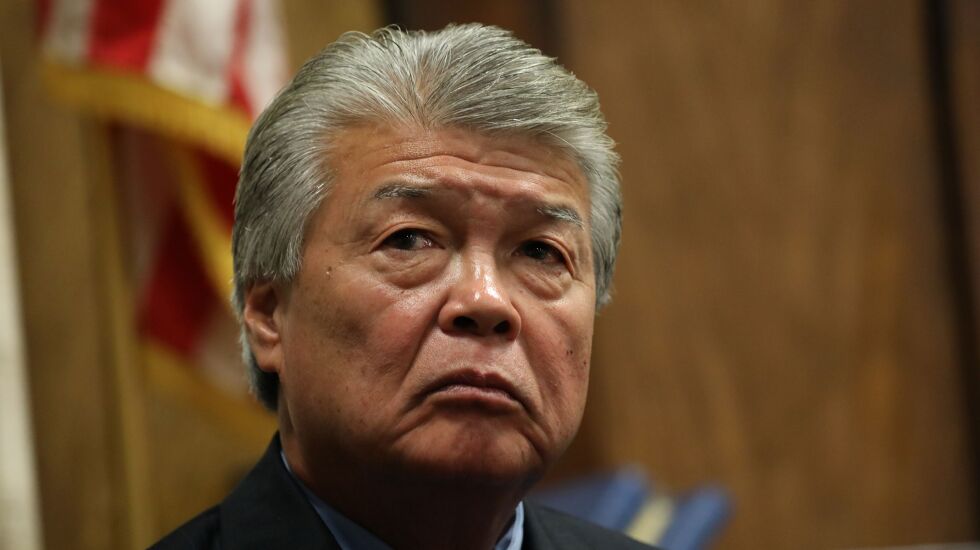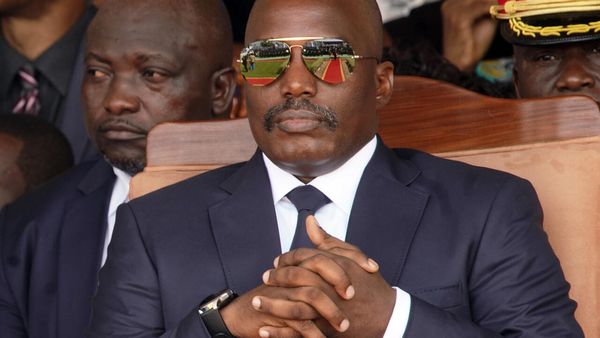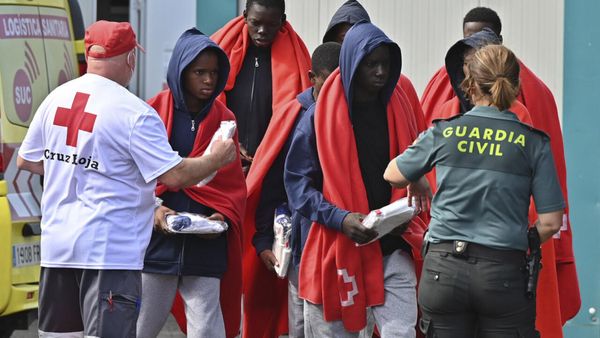
Last year, Cook County State’s Attorney Kim Foxx recused her office from handling eight potentially explosive cases where defendants alleged they were framed by a Chicago police detective married to a criminal court judge.
Now one of those cases is about to cost Chicago taxpayers more than $9 million.
On Monday, the City Council’s Finance Committee will be asked to authorize the settlement to Patrick Prince. He is among a long line of defendants who have accused now-retired detective Kriston Kato of fabricating evidence and intimidating witnesses. Kato is married to Cook County Criminal Judge Mary Brosnahan.
In 1991, Prince and another man were charged with first-degree murder and attempted robbery in the shooting death of 37-year-old Edward Porter near the corner of Francisco Avenue and Flournoy Street on the West Side.
Chicago police officers claimed they were acting on an anonymous tip that Prince, then 19, had been robbing and shooting drug dealers and their customers on the West Side. The tipster supposedly said Porter was on the corner to make a drug buy, that Prince had attempted to rob him and shot him when Porter resisted.
Kato was one of several police detectives who started looking for Prince and found him living with a girlfriend near the murder scene. Kato testified that Prince willingly accompanied detectives to the police station and confessed to the murder the following day.
Kato also arrested another man, whom the detective claimed confessed to having given Prince the gun used in the murder.
But at a pre-trial hearing, Prince testified that a gun-wielding Kato had barged into his girlfriend’s apartment, dragged him out of bed and taken him to a police interrogation room where he was handcuffed to a wall and beaten.
Prince claimed he confessed to the murder only after being slapped in the face, kicked and punched. Kato denied the allegation of police abuse. A judge denied Prince’s motion to bar use of the confession at trial.
In August of 1994, Prince was convicted of first-degree murder and attempted armed robbery after a bench trial that relied heavily on his confession. He was sentenced to 60 years in prison.
After a protracted legal odyssey that included several failed petitions for a new trial, attorneys for the University of Chicago Law School’s Exoneration Project took up the case in 2011.
Prince was granted a new trial after his new attorneys identified four witnesses who said they saw another man shoot Porter. Their petition also presented complaints from more than 30 other defendants who claimed to have been beaten during interrogations by Kato.
In one of those cases, Kato was accused of beating Carl Chatman, a mentally challenged man who convicted of raping a courthouse aide in a Chicago courtroom.
In May of 2017, one month after Prince was granted a new trial, the state’s attorney’s office dismissed the charges against Prince and granted his release. He subsequently received a certificate of innocence from the state and was awarded $225,506 in compensation.
Last year, Will County Judge David Carlson begrudgingly granted Foxx’s motion to recuse her office from handling the cases.
The eight cases, some dating to the 1980s, landed in Carlson’s courtroom in downtown Joliet after Judge Erica Reddick, chief judge of the criminal division, asked that she and all other Cook County judges be recused from the cases involving Kato.
In turn, Foxx asked that a special prosecutor take over the cases to prevent any appearance that Kato’s relationship to criminal court judges was influencing the handling of the case.
Despite qualms about elected prosecutors’ apparent broad latitude to step away from cases, Carlson noted that state law allows a state’s attorney to request a judge appoint a special prosecutor when there is a conflict for the office or “other reasons.”
Assistant State’s Attorney Carole Rogala said that Foxx wanted a special prosecutor to take over the cases simply to avoid “the appearance of impropriety.”
“There has been, unfortunately, a lot of media attention to Cook County prosecutions and how cases are handled in Cook County,” Rogala said on that day.
Kato retired from CPD in 2006 and later worked for the Fraternal Order of Police, the union that represents the bulk of Chicago’s rank-and-file officers. As a union rep in 2014, Kato responded to the scene the night former CPD officer Jason Van Dyke shot Laquan McDonald.







